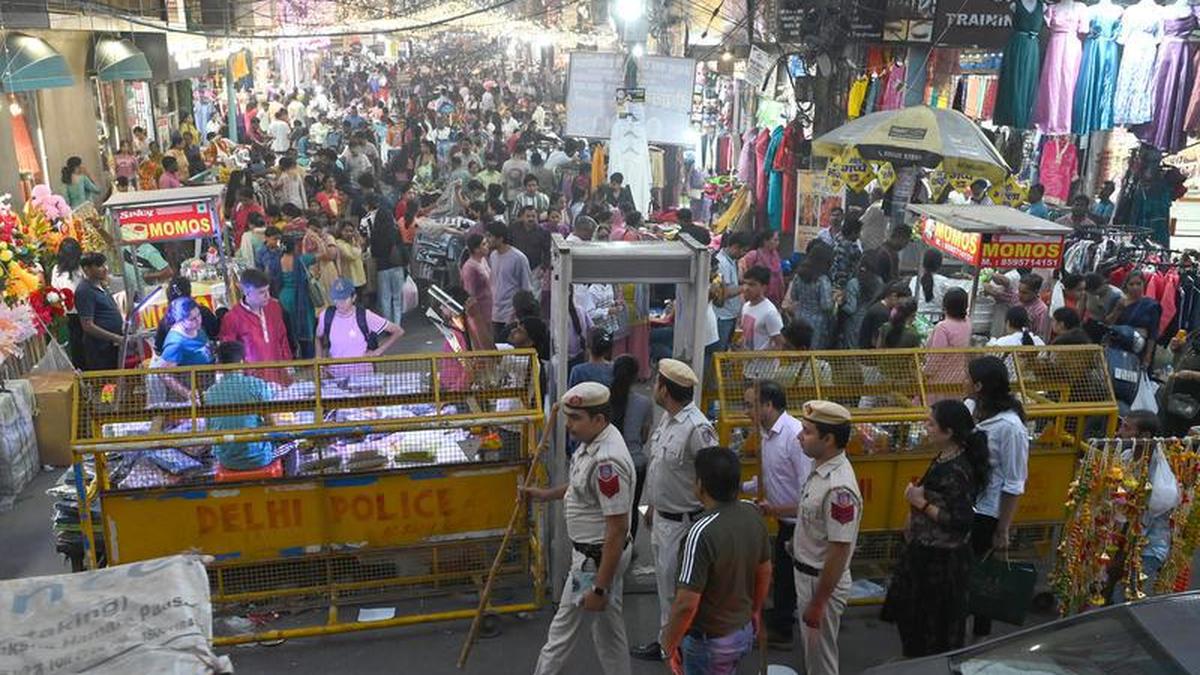
Delhi’s air quality plummets to ‘very poor’, likely to worsen after Deepavali
The Hindu
Rise in air pollution in Delhi on Deepavali eve, with AQI levels reaching 'very poor' and potential 'severe' levels.
On the eve of Deepavali, the national capital witnessed a rise in air pollution on Wednesday with as many as 10 monitoring stations in the city recording ‘very poor’ quality air.
The air quality is likely to worsen further, potentially reaching ‘severe’ levels, with firecrackers already being burst in different parts of the city, violating an existing ban. In the past, too, Delhiites have burst firecrackers during Deepavali, openly flouting the ban.
Delhi’s 24-hour average air quality index (AQI) stood at 307 (‘very poor’) at 4 p.m., up from 268 (‘poor’) on Tuesday, according to the Central Pollution Control Board (CPCB). Of the 40 air quality monitoring stations in the Capital, data from 38 were shared by the CPCB on Wednesday. The AQI in Anand Vihar and Mundka remained ‘severe’, with AQI levels above 400. It was in the ‘very poor’ category in Alipur, Ashok Vihar, Bawana, Burari, Wazirpur, Nehru Nagar, North Campus, Vivek Vihar, Narela, and Jahangirpuri.
The city’s air quality is expected to remain poor in the coming days, posing serious health risks to residents, particularly those with respiratory issues.
According to the Central government’s Air Quality Early Warning System for Delhi, air quality is likely to remain in the ‘very poor’ category till November 2. It may enter the ‘severe’ category on October 31 and November 1 in case of additional emissions from firecrackers and stubble and waste fires, it stated.
Vehicular emission was the biggest contributor to Delhi’s pollution on Wednesday, accounting for 16.2%; it was 15.7% on Tuesday, according to the Centre’s Decision Support System for Air Quality Management.
Delhi Environment Minister Gopal Rai said 377 teams have been formed to enforce the ban on firecrackers. A senior Delhi Police officer said all DCPs have been asked to form teams to ensure that firecrackers are not burst in their respective districts.













